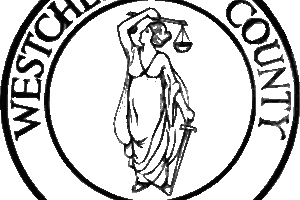
Nowadays, mental health has become an increasingly important topic of conversation. Whether you’re struggling with anxiety, depression, or another mental health condition, understanding the range of behavioral health services available can be a crucial step toward recovery.
This comprehensive guide will discuss the intricacies of behavioral health, exploring the various treatment options, therapeutic approaches, and support services that can empower you to lead a fulfilling life.
What Are Behavioral Health Services?
Behavioral health services aim to address health’s psychological, emotional, and behavioral aspects. These services often focus on identifying and managing conditions such as:
- Mental Health Disorders: Conditions like anxiety, depression, bipolar disorder, and schizophrenia.
- Substance Use Disorders: Issues involving alcohol or drug dependency and addiction.
- Behavioral Disorders: Problems such as ADHD, eating disorders, and obsessive-compulsive disorder (OCD).
- Co-occurring Disorders: When mental health issues and substance use disorders co-occur.
By addressing these conditions holistically, behavioral health services seek to improve overall quality of life, enhance coping mechanisms, and support sustainable recovery. Click here to learn more.
Types of Behavioral Health Services
Behavioral health services offer diverse care options, from outpatient therapy to inpatient treatment, ensuring personalized support for mental health and recovery needs.
1. Outpatient Services
Outpatient programs are designed for individuals who can maintain their daily routines while receiving care. These services include:
- Individual Therapy: One-on-one sessions focusing on specific mental health or behavioral issues.
- Group Therapy: Peer support or clinician-led groups where individuals share experiences and strategies for coping.
- Family Therapy: Sessions aimed at improving communication and relationships within families affected by mental disorders or substance use issues.
- Medication Management: Monitoring and adjusting medications to manage symptoms effectively.
2. Inpatient and Residential Care
Inpatient care is designed for individuals requiring intensive, round-the-clock support. This includes:
- Detoxification Programs: Medically supervised detox to safely manage withdrawal symptoms.
- Short-Term Psychiatric Hospitalization: Acute care for individuals experiencing severe mental health crises.
- Residential Treatment Centers: Long-term care in a structured environment with therapeutic programs tailored to recovery.
3. Community-Based Services
These services focus on accessible care and support within local communities, including:
- Crisis Intervention: Immediate assistance for individuals experiencing a mental health crisis.
- Case Management: Coordination of care services to holistically meet an individual’s needs.
- Support Groups: Peer-led groups for ongoing emotional and social support.
4. Telehealth Services
Telehealth has expanded access to behavioral health services, offering virtual consultations, therapy sessions, and follow-ups. This approach particularly benefits individuals in remote areas or with mobility limitations.
Individuals can take meaningful steps toward well-being and recovery by understanding the range of services available.
Common Treatment Solutions for Behavioral Health

Effective treatment for behavioral health involves a combination of evidence-based practices tailored to individual needs. Here are some of the most utilized treatment solutions:
1. Psychotherapy
Psychotherapy, or ‘talk therapy,’ is a cornerstone of behavioral health treatment. It involves structured interactions with a mental health professional to address emotional and psychological challenges.
- Cognitive Behavioral Therapy (CBT): Focuses on identifying and changing negative thought patterns and behaviors. It’s widely used for anxiety, depression, and phobias.
- Dialectical Behavior Therapy (DBT): Designed for individuals with intense emotional responses, such as those with borderline personality disorder, this therapy emphasizes emotion regulation and interpersonal effectiveness.
- Trauma-Focused Therapy: It helps individuals process and recover from traumatic experiences. Common approaches include Eye Movement Desensitization and Reprocessing (EMDR).
- Interpersonal Therapy (IPT): Focuses on improving communication and relationships to alleviate symptoms of mental health conditions.
2. Pharmacotherapy
Medications are often prescribed as part of a comprehensive treatment plan to manage symptoms effectively. A psychiatrist or primary care provider typically oversees this aspect of care.
- Antidepressants: Used to treat depression and anxiety disorders (e.g., SSRIs like fluoxetine or sertraline).
- Mood Stabilizers: Commonly prescribed for bipolar disorder or mood regulation issues (e.g., lithium, valproate).
- Antipsychotics: Treat conditions like schizophrenia or severe mood disorders (e.g., risperidone, olanzapine).
- Anti-anxiety Medications: Short-term use for acute anxiety or panic disorders (e.g., benzodiazepines like lorazepam).
Medications are often combined with psychotherapy to achieve optimal outcomes.
3. Behavioral Interventions
These interventions target specific behaviors to improve mental and emotional health.
- Motivational Interviewing (MI): A collaborative counseling approach that enhances motivation for change instrumental in addiction treatment.
- Behavioral Activation: Encourages individuals to engage in activities that improve mood and reduce depression.
- Habit Reversal Training (HRT): This focuses on replacing harmful behaviors like tics or compulsive habits with healthier alternatives.
4. Integrated Care Models
Integrated care addresses behavioral health and physical health together, recognizing their interconnectedness.
- Collaborative Care: A team-based approach involving primary care providers, behavioral health specialists, and care managers.
- Chronic Care Management: This focuses on patients with co-occurring chronic conditions like diabetes and depression, ensuring seamless care delivery.
5. Peer and Group Support
Support groups and peer-led interventions offer a sense of community and shared understanding, which is critical for long-term recovery.
- 12-Step Programs: Widely used for addiction recovery, such as Alcoholics Anonymous (AA) or Narcotics Anonymous (NA).
- Group Therapy: Provides opportunities for individuals to share experiences, learn coping skills, and build connections.
- Peer Support Programs: Pair individuals with mentors who have lived experience of similar challenges.
6. Alternative and Holistic Therapies
Complementary approaches are often used alongside traditional treatments to promote overall well-being.
- Mindfulness and Meditation: Techniques that enhance emotional regulation and stress management.
- Yoga and Exercise Therapy: Physical activities that reduce symptoms of anxiety and depression.
- Art and Music Therapy: Creative outlets for emotional expression and healing.
- Nutritional Counseling: Addresses the role of diet in mental health and behavior.
By combining these behavioral health treatment solutions, behavioral health services can create personalized care plans that address each individual’s unique challenges and promote sustainable recovery.
Conclusion
Remember, seeking help is a sign of strength, not weakness. By understanding the diverse range of behavioral health services and treatment options, you can take the first step towards a healthier, happier you. Whether you’re exploring therapy, medication, or lifestyle changes, know there is hope and healing.







